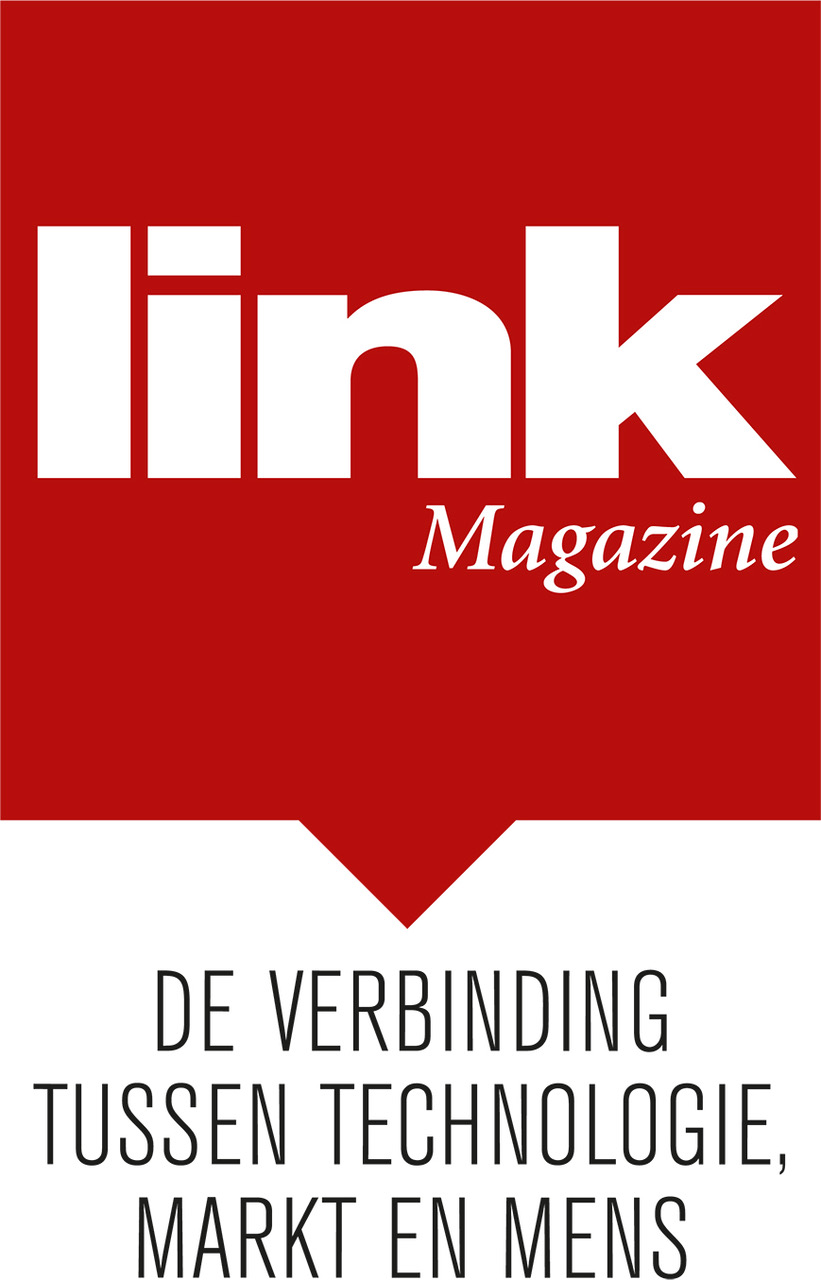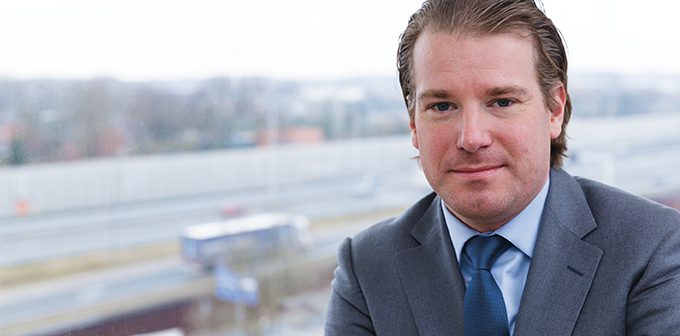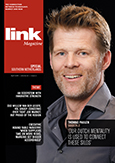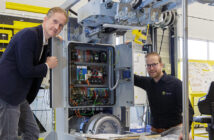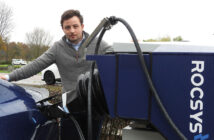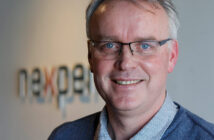Willem van der Leegte is proud of his company and the people who work there, but equally proud of the region from which VDL Groep has originated and in which it is deeply rooted. The company is becoming ever more international, but its core activities continue to centre on the high-tech region in the south of the Netherlands. However, he does worry about the increasingly tight job market. While VDL invests in recruiting and training its people, its CEO calls for action and funding from the Dutch government, in order to attract talented people to the region and also retain them. ‘This region is essential to the Dutch economy as a whole, and that justifies additional funding.’
‘People here are open and direct and willing to collaborate’
A surprising sight upon arriving at the executive floor of the head office in Eindhoven: a little girl is sitting next to Willem van der Leegte at a table covered in children’s books. ‘The teacher was ill and my wife had to go to a first-aid course’, Van der Leegte says with a smile, explaining the presence of his five-year old daughter Victoria, as we move to another room. At the age of 36, he is not much older than the youngest generations now entering the job market, who consider it quite normal to choose to work only four days a week, so that they can set aside a care day for their children (see the section in our April issue). But that is not how this gesture to his wife should be interpreted. When it comes to his own schedule, it is more like a six-day work week.

Family owned company VDL Groep, Wim van der Leegte (left) and ceo Willem van der Leegte. Foto: Bart van Overbeeke
Launched own recruitment
Given the high workload and tight job market, a shorter work week is a bad fit. The regional high-tech industry will need ten of thousands of new people in the coming years. VDL alone now has 700 vacancies. ‘We manage to find new people fairy easily; we have noticed that we are an attractive employer. March last year, we launched our own recruitment department. The idea behind that is to clearly highlight the culture of this company. We are a family business, which focuses on the long term, which is important for the continuity of the business. We now generate a turnover of 5 million euros, which makes us a large company with potential for further growth, where people are quickly given more responsibility. And we also want to explain what we do, and what a huge range of challenging tasks there are at VDL Groep, which includes 95 group companies.
Common ground
Explaining the activities of VDL Groep is something Van der Leegte regularly does when meeting potential clients worldwide. ‘Obviously, we don’t yet have the same name recognition abroad as here in the Netherlands. But since we are active a very wide range of markets, often you quickly find common ground with the business of your discussion partners. I can then explain that we are the leading experts in installing car doors, for example. Or that we are very innovative in a field like mobility as a service. I am a huge advocate of the circular economy. We can completely relieve our clients, bus companies, of all the hassle involved with buying electric buses. We can take care of the financing and maintenance, we can put in place an infrastructure for recharging the batteries, and we can even provide the electricity. No, we don’t have our own power plant, but we do have a container in which we store electricity in batteries in their second life cycle, which we sell or use ourselves. And I can then also mention that we produce complete cars for BMW, develop modules for ASML and produce high-precision parts for CERN. If you can do all that, it doesn’t require a lot of explaining to make clear that we can deliver a high standard of quality and precision.’
Deeply rooted in the Eindhoven region
VDL Groep can deliver those high standards thanks to the Eindhoven region that is its ecosystem, and in which it is deeply rooted. ‘We increasingly operate internationally, and we are now active in twenty countries, including Singapore and China. But at the same time, 85 percent of our workforce is employed in the Netherlands, which is the highest this rate has been since the 1990s. In fact, the investments we are making abroad, in the US for example, are boosting the number of jobs here. By reinforcing the commercial and engineering activities of our system developer VDL ETG in the US, more production jobs are being created here. The same holds true for VDL USA, our packaging machines production business, and the sales office we opened in Spain for VDL Bus & Coach. Our investments are also generating more engineering and production work in the Netherlands. In addition, European clients ask us to assist them in building up a supply base elsewhere in the world. By doing so, we reinforce our position with these clients here in the Netherlands.’
Proud of Eindhoven high-tech region
The fact that his company continues to have a Dutch name (‘Groep’ rather than ‘Group’), and that its logo features the colours of the Dutch flag, show how proud VDL Groep is of the region from which it hails, the CEO stresses. ‘Yes, I do mention ASML to clients sometimes. Because the fact that such a company is based here speaks volumes about the quality of the high-tech industry in our region. Indeed, our region is recognised to be among the smartest regions worldwide (Macquarie Research, 2017, eds.). But the mindset we have here is also a key asset. People here are open and they speak their minds. They are willing to work together and shoulder risks together.’
Working together with education sector
At the same time, the tight job market is a real problem. That explains the company’s decision to launch its own recruitment department. And why they are working closely together with the education sector at all levels. ‘Fifty percent of our companies offer accredited apprenticeships to young people studying towards an intermediate vocational (MBO) degree. But we also offer opportunities to students at university level. Clients like ASML ask us to create products at an ever high standard – build to spec – and to assume complete responsibility for the development of modules, such as the wafer handler. This module places the wafer into and removes it from the chip production machine with the highest possible precision per lithographic cycle. So we fund applied research conduced by graduate students at the Eindhoven University of Technology. We obviously provide this funding because we can then use the findings, but also to ensure there are enough challenging research opportunities in our region. Because that increases the attractiveness of the region for talented people from outside the Netherlands.’
Retaining talented people
Once talented people have been found to fill the vacancies in the high-tech industry around Eindhoven, the next challenge is to retain them. The Dutch government also has a role to play here, Van der Leegte feels; a view that is shared by his high-tech colleagues in the region. Therefore, the ‘Regional Envelope for Brainport Eindhoven’ was presented to the country’s politicians in The Hague earlier this year. This petition calls for 170 million euros in additional funding to boost the attractiveness of the region as a business location and as a place to live. ‘This region is essential to the Dutch economy as a whole, and that justifies additional funding. Particularly when you consider that the city of Amsterdam receives 195 euros per resident from the Municipalities Fund, whereas the city of Eindhoven only gets 1.53 euros per resident. So our appeal deserves to be heeded, and I am confident that it will.’ Van der Leegte is full of confidence, pointing to the decision of the government to designate the Eindhoven ‘brainport’ as the third ‘mainport’ in the Netherlands, alongside Amsterdam Schiphol Airport and the Rotterdam seaport.
Technical education
In addition, he emphasises, the government should put more funding into technical education. ‘Businesses are in dire need of skilled technical professionals. Fortunately, the number of young people enrolling in technical education is increasing. But we cannot afford to have a situation where schools have to freeze admissions because they can’t cope with the increase in enrolments. That would obviously be unacceptable, particularly if this region continues to experience further growth. So funding levels for technical education need to be increased.’
A week after the interview, the Dutch government announced that it will invest 130 million euros from the Regional Envelope to improve the attractiveness of Brainport Eindhoven as a business location.
‘Of course we do discuss the margins with ASML’
AMSL is a company that is praised, but also criticised. The successful manufacturer of chip production machines demands that its key suppliers deliver to a high standard – build to spec – and assume complete responsibility for the development of modules, including all associated risks. But ASML is unwilling to pay fair prices for the development work it outsources, and on top of that it snatches from the job market all the talented people needed by its suppliers for that very work, critics in the Eindhoven high-tech industry say. Van der Leegte is not particularly convinced by these criticisms: ‘We are proud to be a supplier of ASML and we have a long-term business relationship with them. Of course we do discuss the margins with ASML and we clearly explain our position. If you take complete responsibility for the development work, anyone can see that it’s unfair if you have to shoulder the costs when things go wrong, but don’t get to share in the additional revenues when the development is a success. Because that way, you will soon be out of business as a supplier. If you explain that clearly, they do understand. Do we feel AMSL’s margin is too low…? If that were so, we would have to change our line of business’, says Van der Leegte. He continues: ‘Having clients like ASML and BMW is great for the profile of our company. They are also clients we learn a lot from. And they also learn a lot from us.’
Key figures
Particularly thanks to the addition of VDL Nedcar, both the turnover and workforce of VDL Groep have increased significantly in recent years. For this year, VDL Groep expects to achieve a turnover of 6 billion euros. Its total number of employees now stands at 16,000 people. The company has a solid financial position and a solvency ratio of 56%. VDL Groep currently consists of 95 companies operating in twenty countries.
